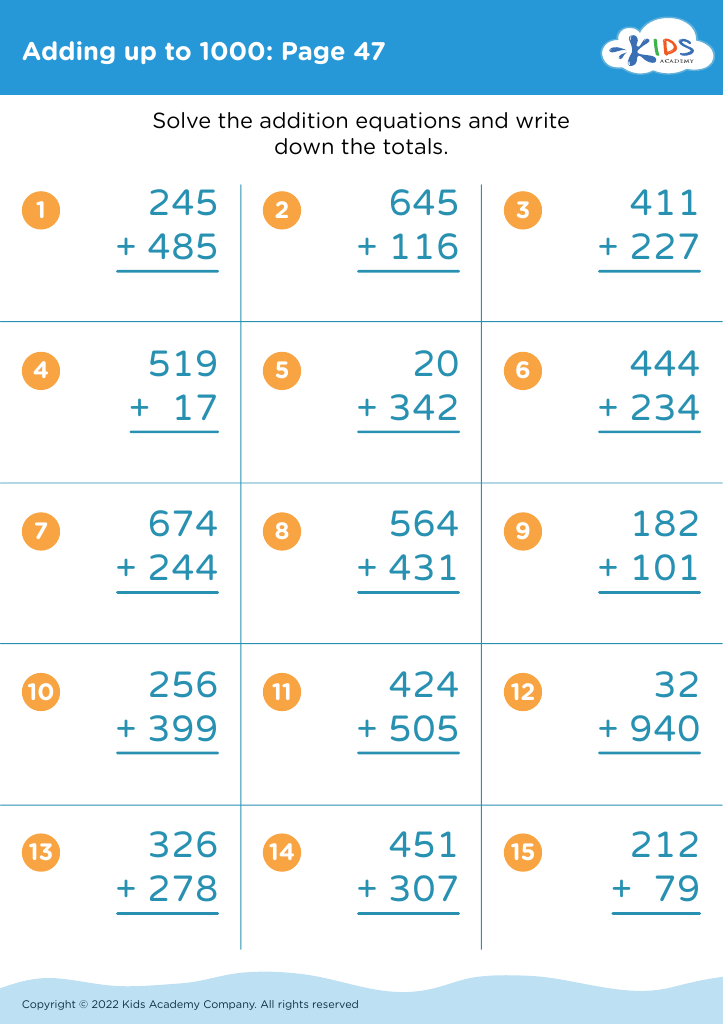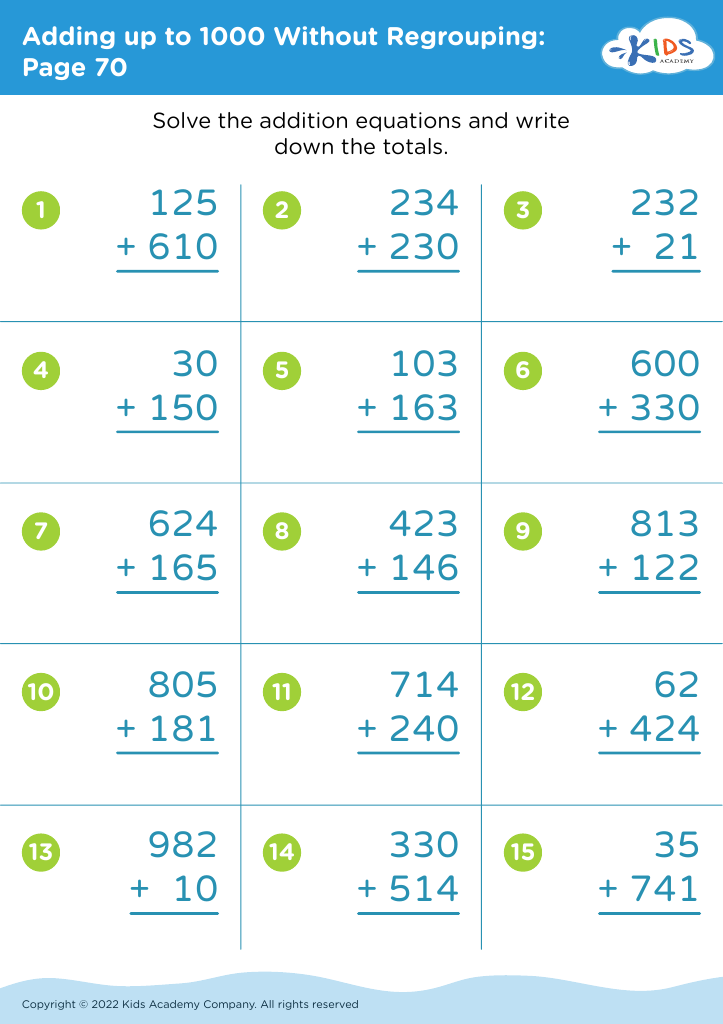Understanding quantity Adding up to 1000 Worksheets for Ages 4-7
3 filtered results
-
From - To
Discover our engaging "Understanding Quantity: Adding up to 1000 Worksheets for Ages 4-7" designed to enhance your child's early math skills. These printable activities offer fun, hands-on practice to help young learners develop a solid grasp of numbers and arithmetic. Tailored for children ages 4-7, our worksheets encourage counting, basic addition, and understanding quantities up to 1000. Watch as your little mathematician gains confidence and enjoys learning with visually appealing, carefully structured exercises crafted to make math both challenging and entertaining. Explore our collection today and support your child's journey to math excellence!
Understanding quantity and adding up to 1000 for children ages 4-7 is fundamental for several reasons. Firstly, it builds a solid math foundation that fosters confidence and proficiency in more advanced mathematical concepts they will encounter in later years. Children are naturally curious and capable of understanding numeric relationships early on if guided appropriately.
Incorporating numbers up to 1000 can significantly enhance their comprehension of place value, which is a cornerstone of our number system. This understanding enables children to intuitively grasp operations like addition and subtraction, thus making these seemingly complex problems more accessible.
Moreover, early math skills are closely tied to problem-solving abilities. By engaging with larger quantities, children develop stronger reasoning and analytical skills. These cognitive skills are essential not just in academics but in everyday decision-making and critical thinking.
Introducing children to quantities up to 1000 also bolsters other learning areas like pattern recognition, memory, and even language through the precise use of vocabulary. Lastly, early competence with larger numbers sets children on a path to enjoy and not fear mathematics, thus encouraging a lifelong engagement with STEM (Science, Technology, Engineering, and Mathematics) fields. Therefore, the importance of grasping these concepts at an early age cannot be overstated.



















